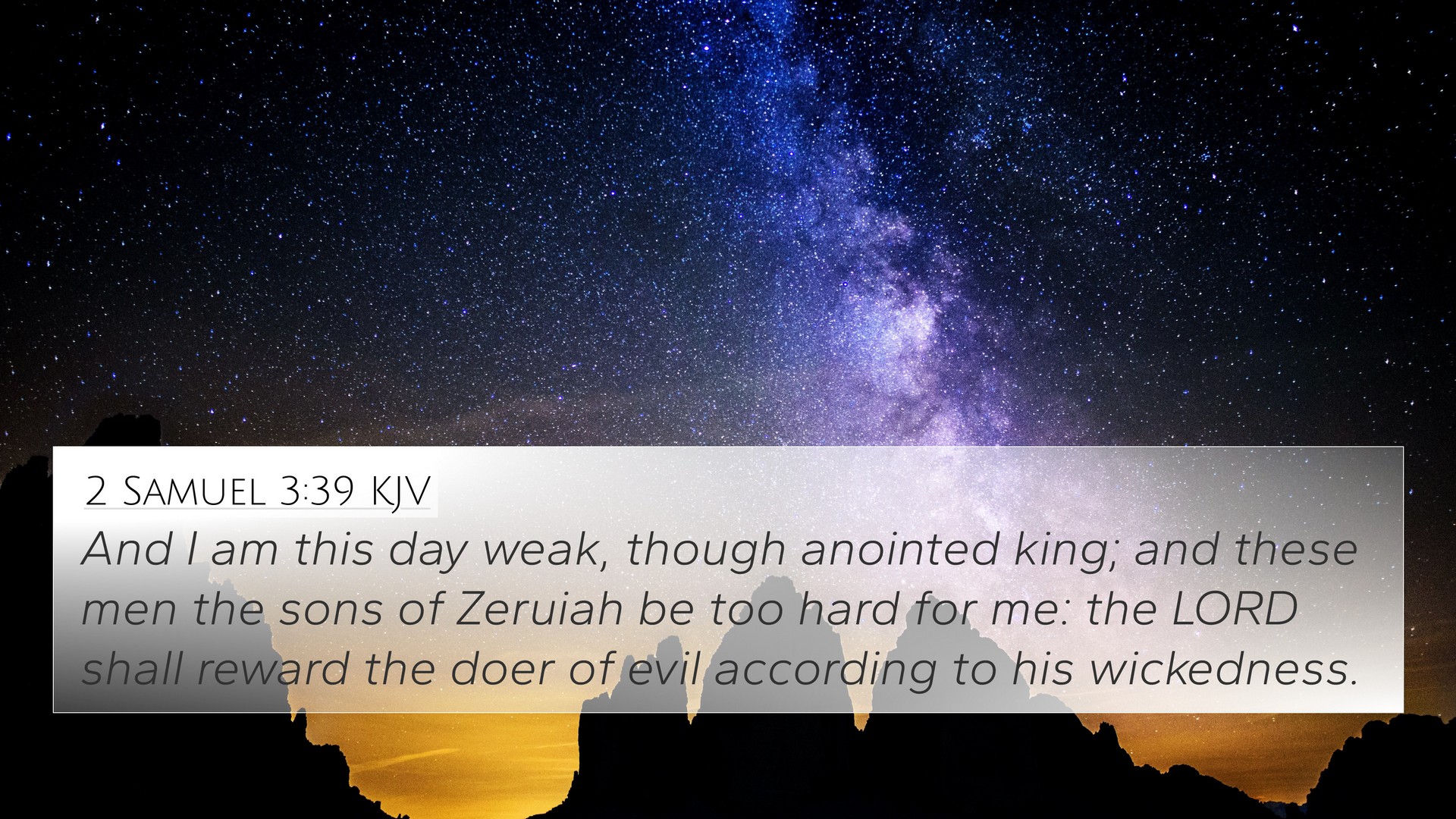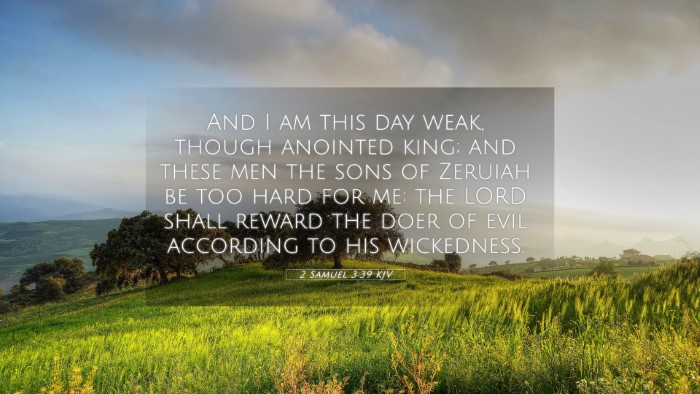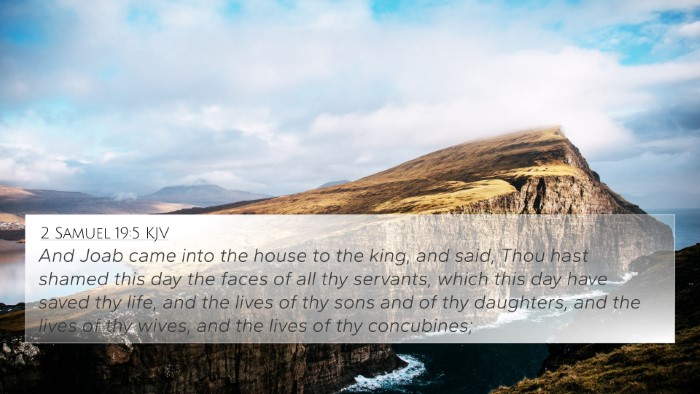Understanding 2 Samuel 3:39
2 Samuel 3:39 states: "And I am this day weak, though anointed king; and these men the sons of Zeruiah be too hard for me: the LORD shall reward the doer of evil according to his wickedness." This verse encapsulates David's emotional and physical state post-conflict and reflects his acknowledgment of vulnerability despite his anointing.
Commentary Insights
Various public domain commentaries provide depth to the meaning of this verse:
- Matthew Henry: He highlights David's humility and recognition of his limitations. Although David is the anointed king, he candidly speaks of his weakness, illustrating a king who is deeply aware of the complexities of leadership and the burdens that come with it.
- Albert Barnes: Barnes emphasizes the importance of divine assistance. David's acknowledgment of his weakness suggests that true strength lies not in personal might but in reliance on God's support.
- Adam Clarke: Clarke notes the significance of David recognizing the threat posed by Joab and Abishai, the sons of Zeruiah. His statement reflects the turbulent atmosphere surrounding his reign and the internal conflict within his leadership.
Key Themes in 2 Samuel 3:39
This verse presents several themes relevant to leadership, vulnerability, and divine justice:
- Leadership and Authority: Reflects on the heavy burden kings carry and the susceptibility to internal strife.
- Vulnerability: A recognition that power does not equate to strength devoid of challenges.
- Divine Justice: The assurance that God will ultimately deal with those who commit evil.
Cross-References for Deeper Study
To better understand 2 Samuel 3:39, consider the following Bible cross-references:
- 1 Samuel 16:13-14: David's anointing as king.
- Psalm 38:6: A reflection on personal weakness and sin.
- 2 Samuel 1:16: David's response to the death of Saul.
- 2 Samuel 1:27: Mourning over the fallen.
- 1 Chronicles 29:12: Recognition of God's sovereignty in leadership.
- Proverbs 24:10: Finding strength in God's support during weakness.
- Romans 12:19: God’s role as the ultimate judge of evil deeds.
Tools for Bible Cross-Referencing
Using Bible cross-references can enhance your understanding of scriptural connections:
- Bible Concordance: A valuable tool for finding related verses.
- Cross-Reference Bible Study: Methods to explore thematic connections.
- Bible Reference Resources: Tools that compile scriptural parallels.
Exploring Inter-Biblical Dialogue
Understanding how different scriptures converse with each other can deepen insight into biblical themes:
- Identifying Connections: Viewing links between the Old and New Testament, such as the theme of leadership from the past informing the teachings of Christ.
- Comparative Study: Analyzing motifs in the Pauline epistles and their continuity with the earlier scriptures.
Thematic Bible Verse Connections
Connecting 2 Samuel 3:39 with other themes, such as leadership and divine justice, enriches the reader's comprehension of biblical narratives.
Conclusion
In summary, 2 Samuel 3:39 is a powerful verse that highlights the complexity of leadership through David's candid expression of weakness. It ties together themes of reliance on God and the assurance of divine justice, inviting deeper exploration through cross-referencing and comprehensive study. This analysis is critical for anyone seeking to grasp the profound connections between Bible verses, establishing a foundation for further biblical research and understanding.




















